Introduction
Can Ferrets Eat Apples: The dietary choices for our furry companions are a subject of utmost importance, and when it comes to ferrets, a commonly asked question is whether they can enjoy the deliciousness of apples. Ferrets, known for their playful and curious nature, have specific dietary needs that must be met to ensure their health and well-being. In this article, we will explore the intriguing world of ferret nutrition and investigate whether these small carnivores can safely indulge in the occasional apple treat. Join us as we peel back the layers of this culinary question to reveal whether apples are a suitable addition to a ferret’s diet or a snack best left on the forbidden fruit list. Ferrets, with their inquisitive nature and boundless energy, have a reputation for being voracious eaters.
However, their dietary requirements are unique, primarily due to their strict carnivorous nature. Unlike many other pets, ferrets have a short digestive tract that is designed for processing animal proteins and fats efficiently. Their diet should primarily consist of high-quality, meat-based foods to meet their nutritional needs. In the world of pet nutrition, fruits like apples are often considered wholesome and nutritious treats for certain animals, but the same may not hold true for ferrets water. While apples are rich in vitamins, fiber, and natural sugars, they also contain substances that could be problematic for these little carnivores. In this article, we will explore the potential benefits and risks associated with feeding apples to ferrets, providing you with valuable insights to help you make informed decisions about your ferret’s diet.
We will also discuss alternative treats that may better suit your furry friend’s nutritional requirements. So, let’s embark on this journey of discovery and find out whether ferrets can safely enjoy apples or if they should stick to their carnivorous diet. One of the main concerns when it comes to offering apples to ferrets is their high sugar content. Ferrets are not equipped to handle excessive amounts of sugar in their diet. Consuming too much sugar can lead to health issues, including obesity and insulinoma, a common and serious pancreatic disease in ferrets. Therefore, it’s crucial to provide treats sparingly and monitor your ferret’s overall sugar intake.
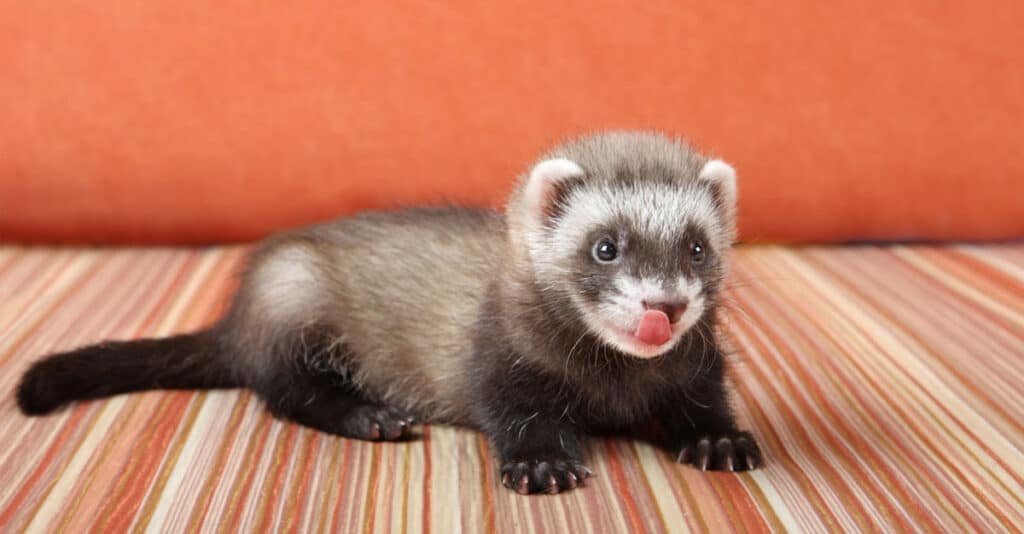
Is it safe for ferrets to eat apples?
Ferrets’ digestive systems are made to digest meat and not complex carbohydrates. Never feed your ferret any kind of fruit, even as a treat. While some ferret fanciers may say it’s OK, the American Ferret Association advises against feeding bananas, raisins, apples, carrots and all other fruits and vegetables.
Apples are a common household fruit cherished for their delightful sweetness and crisp texture. They’re also packed with vitamins, minerals, and dietary fiber, making them a popular choice for healthy snacking among humans. However, when it comes to ferrets, their ability to safely enjoy apples is a subject that merits a closer look.
Apples are naturally sweet, but they can also be quite high in sugar. Ferrets have a limited capacity to process sugar, and excessive consumption can lead to health issues such as obesity and insulinoma, a serious pancreatic disease.
Ferrets have a short digestive tract that is well-suited for processing animal proteins and fats. However, their digestive system may struggle with the fiber found in fruits like apples, which can lead to gastrointestinal problems, including diarrhea.
The seeds and core of apples contain small amounts of cyanide compounds. While it’s rare for a ferret to ingest enough of these compounds to be harmful, it’s still advisable to remove seeds and cores to err on the side of caution.
What foods are poisonous to ferrets?
Vegetables – especially hard vegetables such as carrot, which can also block their digestive tract, and avocado. which is poisonous to ferrets. Fruit – These are very high in sugar. Grapes/raisins are also toxic to ferrets.
Sugary and High-Fat Foods: Ferrets are obligate carnivores, and their digestive systems are not designed to handle high levels of sugar or fat. Avoid giving them sweets, pastries, or fatty foods like fried items.
Bones: While some bones can be suitable for larger animals, ferrets have delicate digestive systems and can easily choke or suffer from gastrointestinal blockages if they ingest bones. Avoid giving them any kind of bones.
Onions and Garlic: These vegetables, whether raw, cooked, or in powdered form, contain compounds that can damage a ferret’s red blood cells, leading to anemia. They should be kept away from your ferret’s diet.
Grapes and Raisins: The exact reason is unknown, but grapes and raisins have been associated with kidney problems in some animals, including ferrets. It’s best to steer clear of these fruits.
Can I feed my ferret fruit?
Ferrets enjoy sweets, dairy products, raisins, fruits, and vegetables, but these foods should be avoided because they may produce diarrhea and erratic swings in blood sugar. A piece of cooked meat or some meat baby food is acceptable as an occasional treat.
Sugar Content: Fruits are naturally sweet, but they can be high in sugar, which can lead to health issues in ferrets. Ferrets have a limited ability to process sugar, and excessive consumption can result in problems like obesity and insulinoma, a serious pancreatic disease.
Fiber: Ferrets have a relatively short digestive tract that is optimized for processing animal proteins and fats. While some fiber is essential for digestion, excessive fiber from fruits and vegetables can lead to gastrointestinal problems, including diarrhea.
Moderation: If you decide to offer fruit to your ferret, do so in moderation. These treats should represent only a small fraction of your ferret’s overall diet.
Seed and Core Removal: Some fruits, like apples, contain seeds and cores that can be harmful due to the presence of small amounts of cyanide compounds. Always remove seeds and cores before offering fruit to your ferret.
Do ferrets give kisses?
Kissing. Just as in humans, your ferret kissing you on the lips can be a sign of affection. It can also mean that your ferret likes the flavor of your lip balm or of the turkey sandwich that you had for lunch.
Ferrets are social animals that enjoy interacting with their human companions. They communicate through various body language cues and behaviors, and some of these may resemble what humans interpret as “kisses.”
Ferrets are known for nuzzling their faces against their owners, particularly around the neck, chin, and even the mouth. They may also give gentle licks as a sign of affection. While this behavior may seem like a kiss, it’s more about bonding and marking you as part of their social group.
Ferrets have scent glands on their cheeks and chin, and when they nuzzle or lick you, they are transferring their scent onto you. This is a way for them to claim you as part of their territory and show affection at the same time.
Ferrets also engage in playful nibbling, which can sometimes be mistaken for kisses. They use their mouths to explore their environment and interact with their human companions. This behavior is usually gentle and not meant to cause harm.
Can ferrets eat cucumber?
Ferrets enjoy fruit and sweet vegetables such as grapes, bananas, apple, melon, carrots, and cucumber as a dietary complement. Remove skins that are tougher than a grape peel and slice stringy items like celery into thin slices rather than sticks to avoid intestinal blockages.
Ferrets are obligate carnivores, which means their bodies are adapted to thrive on a diet that is predominantly animal-based. Their digestive systems are optimized for breaking down proteins and fats, and they have a short digestive tract that limits their ability to process fiber and plant matter efficiently.
Cucumbers are not nutritionally dense, especially for a carnivorous animal like a ferret. They lack the essential nutrients, especially protein and fat, that are crucial for a ferret’s health.
Cucumbers contain fiber, which can be challenging for ferrets to digest due to their short digestive tracts. Excessive fiber intake can lead to gastrointestinal problems, including diarrhea.
If you decide to offer a tiny piece of cucumber to your ferret as an occasional treat, it’s essential to do so in moderation. Keep in mind that cucumber should represent only a small portion of your ferret’s overall diet.
Can ferrets eat chicken?
Ferrets love both cooked and raw meat, in particular rabbit, poultry and mice. Raw meat should be given fresh and don’t worry about the bones, ferrets can eat bones and they are a great source of calcium, marrowbone and minerals.
Cooked Chicken: Cooked chicken, particularly lean cuts without bones and skin, can be a nutritious addition to a ferret’s diet. Ensure it’s thoroughly cooked to kill any potential bacteria or parasites.
Boneless and Skinless: Remove bones and skin from the chicken before feeding it to your ferret. Bones can pose a choking hazard, and the skin is often fatty, which can be too much for your ferret’s digestive system.
Portion Control: Chicken should be offered in small, bite-sized portions as a treat or supplement to their regular ferret food. It should not replace their primary ferret-specific diet.
Variety: While chicken is a good protein source, it should be part of a varied diet. Offering a mix of protein sources such as turkey, duck, and other poultry, along with high-quality ferret kibble or raw diets, helps provide a well-rounded nutrition.
How do you potty train a ferret?
During the training period, continue to place any feces or soiled bedding from elsewhere in the cage, into the box. Ferrets are intelligent and respond well to positive reinforcement (praise). Each time they go to the toilet in their litter tray, give them a tasty treat and plenty of praise.
Choose a suitable litter box for your ferret. It should be shallow, easy to enter and exit, and low enough for your ferret to climb into comfortably. Some ferret-specific litter boxes come with lower sides, which can be helpful.
Line the litter box with an appropriate bedding material. Many ferret owners use pelleted paper or recycled newspaper-based litters. Avoid clumping cat litters, as they can be harmful if ingested.
Ferrets have small bladders and may need access to a litter box quickly. Place several litter boxes in different areas of your ferret’s living space to ensure they can easily find one when needed.
Pay close attention to your ferret’s behavior and body language. Ferrets often give subtle signs when they need to relieve themselves, such as sniffing the ground or scratching at the floor. When you notice these signs, gently place them in the litter box.
Can ferrets swim in water?
Ferrets can swim in the ocean or in nearly any household vessel that can hold water, including bathtubs. Just like their wild cousins, most domestic ferrets adore playing in the water and will take every opportunity you give them to have some fun while splashing around either indoors or out.
Supervision: Always supervise your ferret when they are near water, especially if they are swimming. Ferrets can become disoriented or tired in the water, so it’s crucial to keep a close eye on them.
Shallow Water: Start with shallow water in a bathtub or a small kiddie pool to see how your ferret reacts. Ensure the water level is low enough that they can stand or easily reach the side.
Gradual Introduction: If your ferret seems comfortable in the water, you can gradually introduce them to deeper water. However, always monitor their reactions and never force them into a situation they are uncomfortable with.
Drying Off: After any water activity, thoroughly dry your ferret with a towel to prevent them from getting cold, which can lead to health issues.
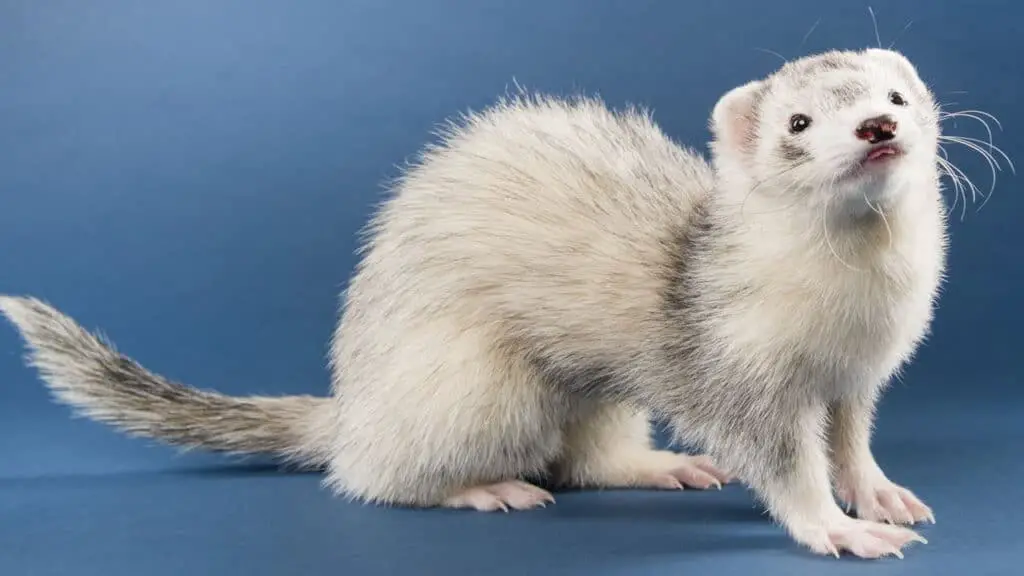
Conclusion
While apples offer certain nutritional benefits, including vitamins and fiber, they also come with potential risks due to their high sugar content and the presence of cyanide compounds in the seeds and core. Ferrets are obligate carnivores with specific dietary needs, primarily focused on animal proteins and fats. Therefore, apples should only be offered to ferrets apples as an occasional and small treat, and it’s crucial to remove seeds and cores to avoid potential harm. In general, it’s advisable to prioritize treats that align better with a ferret’s carnivorous nature, such as commercial ferret treats or small portions of lean meat. These options can provide a more suitable balance of nutrients for your furry companion while minimizing the risks associated with sugary or fibrous foods.
As with any aspect of ferret care, consulting with a veterinarian who specializes in ferret health can provide valuable guidance on your pet’s specific dietary needs and treat options. Ensuring that your ferret’s diet is tailored to their unique requirements will help keep them happy, healthy, and thriving. When it comes to feeding apples or any non-meat treats to ferrets, moderation is essential. Ferrets should have a predominantly meat-based diet to meet their nutritional requirements. The high sugar content in apples can lead to health issues, including obesity and insulinoma. Keep sugary treats to a minimum to avoid these problems. Always remove apple seeds and the core before offering any to your ferret. The small amounts of cyanide compounds in these parts can be harmful.
While small apple treats can be enjoyed occasionally, it’s vital to ensure that a ferret’s primary diet consists of high-quality, commercial ferret food or a balanced raw diet that aligns with their carnivorous nature. Each ferret is unique, and their dietary needs can vary. Consulting with a veterinarian who specializes in ferret care can provide tailored guidance on your specific ferret’s dietary requirements and suitable treat options. In the end, the goal is to keep your ferret healthy, happy, and free from diet-related health problems. By approaching treats like apples with caution and focusing on a diet that meets their carnivorous needs, you can ensure that your ferret enjoys a fulfilling and nutritious life as your beloved companion.


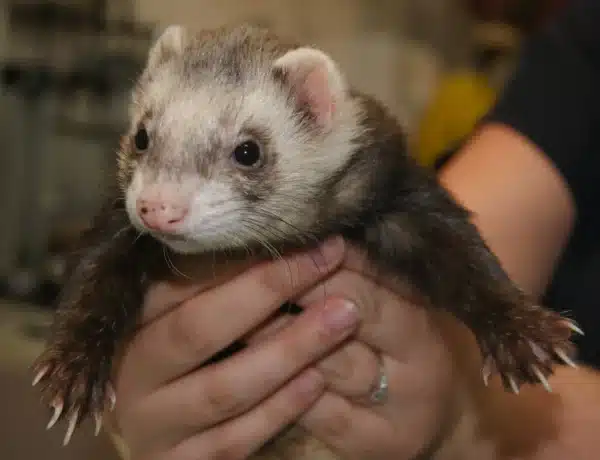
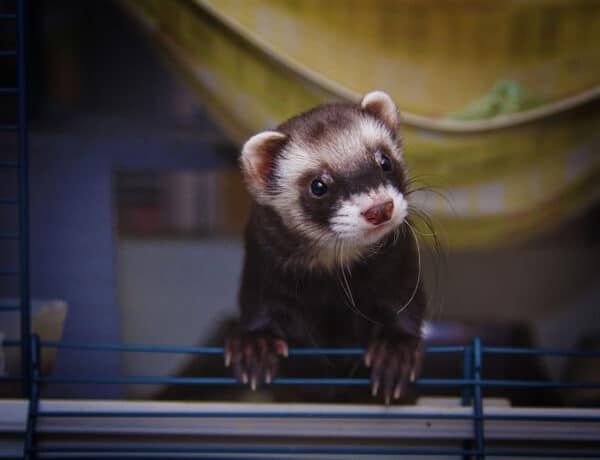
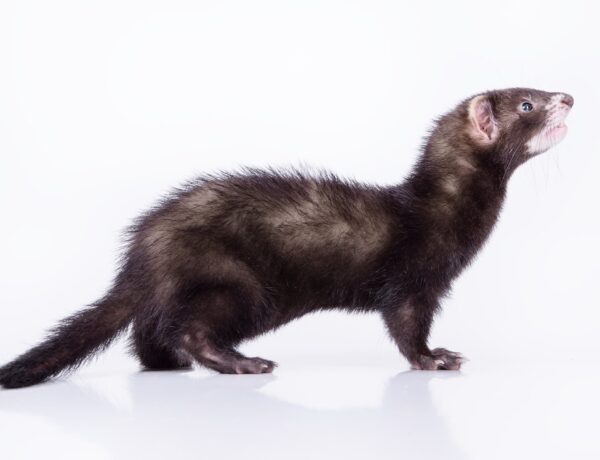
No Comments